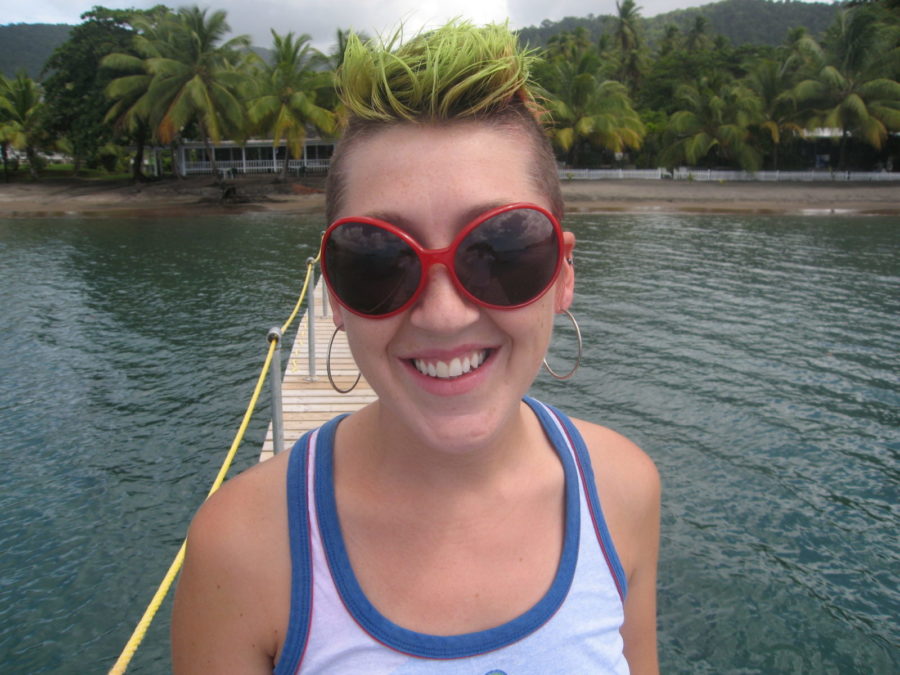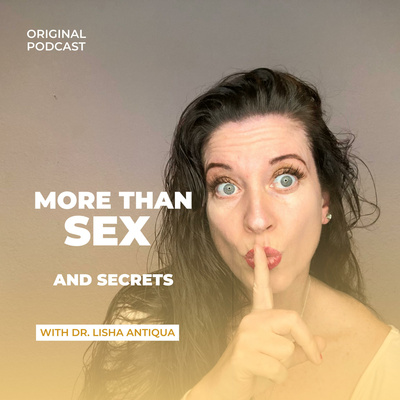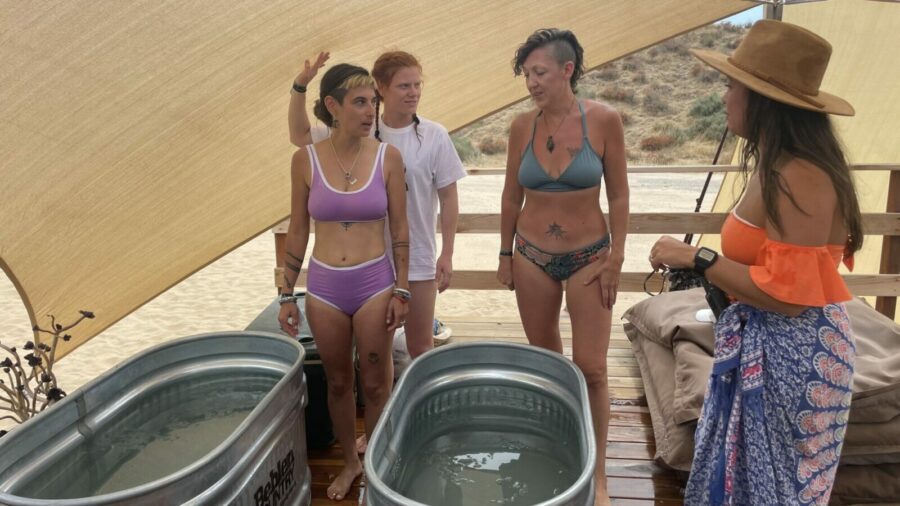My first experience in psychiatry was actually as a psychiatric technician at a state psychiatric hospital. I worked on a unit with extremely acute and many times agitated patients. As a psych tech, I spent a lot of time one on one with my patients and really got to know them well.
I would see the psychiatrist come by for maybe 30 seconds to a minute and ask a few questions and then make a decision to raise or change their medications based on this. To me, this seemed pretty crazy, especially because the medications didn’t seem to help much and many times made the patients worse. Most patients didn’t want to take their medications because of the horrible side effects so I spent a lot of time trying to convince them to do it.
But the entire time, I had this gnawing feeling that something was wrong. I wondered why the psychiatrists were prescribing meds for what appeared to be life problems. Every single patient I worked with had horrible histories of trauma and from my point of view, it seemed like healing this had to be more helpful than drugging them until they turned into zombies.
But I was just a measly psych tech, so I thought maybe the psychiatrists knew something that I didn’t.
So that’s why I decided to go to medical school. I wanted to know what I didn’t know.
Medical school and residency were very traumatic for me and I’ll go into that story another day. After my residency in psychiatry, I obtained two fellowships from Columbia University and started working as an attending and assistant director of the Columbia psychiatric emergency room in Manhattan.
At the age of 36 I was living the American dream working as a psychiatrist and managing an emergency room in the top psychiatric hospital in the United States. I had every material thing I could want but I didn’t have the most important thing, my health.
My health and mental health had really plummeted during my medical training and I was working crazy long shifts in the ER. This ultimately led to complete burnout and many health problems. At one point I was taking over 20 pills a day and having panic attacks almost every day.
I had wanted to have children but had been told by multiple doctors that I couldn’t due to my severe endometriosis and other chronic health issues. But my holistically minded doctor told me that I could if I quit my job and radically changed my life. Those few words ultimately changed my life completely.
So, I reduced the number of hours that I was working and changed every aspect of my life. I quit smoking, caffeine and alcohol. I completely overhauled my diet. And I got regular exercise and started mind body practices. Within a few weeks, I was able to taper off of every medication I had been taking. All of my health and mental health problems completely disappeared.
I then conceived 2 healthy embryos via IVF.
And then I finally cut the cord to my comfortable life. I broke my golden handcuffs and quit my job and left New York City.
I moved to Virginia to be closer to family and I launched my dream, Free Range Psychiatry. I created a practice focused on helping patients use a holistic approach like I had so that they could actually heal the root issues of their problems without having to rely on toxic medications.
When I first opened the practice, I still believed that some people may need medications in addition to holistic interventions. This belief had been drilled into me so thoroughly during my training that I hadn’t let it go completely.
But I noticed something very interesting in my practice. My patients who were not on ANY medications actually did WAY better than the ones who were. So I started actually digging into all of the data and research. I read hundreds of studies and books and what I ultimately found shook me to my very core.
I learned that mental illnesses are not incurable diseases. They really aren’t even diseases at all.
Not only that, but psychiatric medications don’t treat a single cause of mental illness, they cause tremendous side effects, disconnect people from their soul and worsen longterm outcomes. While they may lower suicide risk in some people short term, they raise it in many others and can increase it in the longterm.
They also cause such severe withdrawal and dependence that it can be pure hell to try and stop them and this is why many people end up taking them for life.
Perhaps the craziest thing that I learned is that when you look at all the data, including all of the drug trials, it’s clear that psychiatric medications are essentially no better than placebos, which means that our minds are just as if not more powerful than these drugs.








Thank you for writing this piece and sharing it. As a recovering psychiatrist I regularly have to remind myself of the times I stepped back and had the clarity to see the root causes of imbalance. And the clarity to see where allopathic psychiatric practice was asking me to guide people down a dead end of drug treatment. Grateful to not feel alone with that!
Thank you for sharing your perspective! I love hearing from other psychiatrists out there who have woken up! :)
I love your content. Thank you.
You are quite welcome! :)
Can you help someone going through antidepressant withdrawals?
Yes, this is exactly what we specialize in! Can click the Book button to book a free discovery call with us. :)
Just found out about you the other day hats off to you !!!
Yeah Akathisia is a major crime against humanity in my view. Psychiatrists who work in psych ‘hospitals’ know the hell they are causing – the patients and family, friends tell them in their distress and fear but they still drug the hell out of them with neuroleptics. They get away with it because it looks like serious mental ‘illness’. Coming of psych drugs can be hell on earth you never think will end but I’ve survived akathisia twice and am here to tell everybody you can be normal and out of that utterly horrific state, you just have to be very careful not to get stressed and to be aware when it’s happening and get out of the situation asap.
How to beat a psychiatrist
Hi I am looking to have my 13-year old daughter evaluated by a psychiatrist who does not believe in prescribing psychotropic medications. In the New York City area. Can you point me in the right direction?
Yes, we can help! Click the Book Now Button or go to: https://freerange.org/book-appointment/ to book either a discovery call or consultation with us. We are able to see you in New York City virtually. :)
Hi ,This website and article was an incredible one! I live in South Africa !otherwise I would book an appointment with you!Just one question to help me – you said in your observations with patients that dealing with the root of the problem will cure it ! Can you recommend a good form of therapy for this !?CBTs ? And I’ve been told I have mild psycisis ! ??thank you
Shoshana Centner
Hi ,could you please suggest the best way to heal psycosis at its root including the trauma and hallucinations and voices that follow !!????I have mild psycosis I’ve taken psycotropic medication for many years and absolutely 100% 1000% agree with all you say ?Thank G- d
It is difficult to suggest the best way without going over all the various factors that have caused the initial distress. There are various factors that need to be looked at, and hence cannot be commented upon without a proper evaluation. However, a genuine holistic approach towards treatment has worked for us and that is what we specialize in.